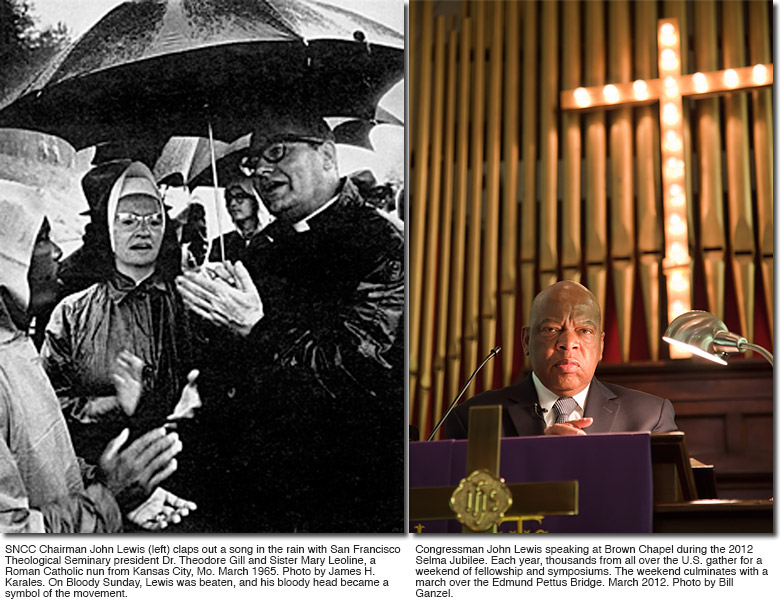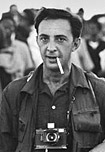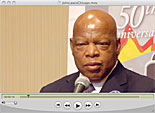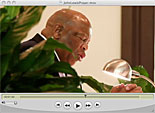John Lewis "Selma: Turning Point for the Church"

|
||
|
John Lewis was at the heart of the civil rights movement for African Americans during the 60s, and he has served the nation as a Congressman from Atlanta since 1986. In 2011, he was presented with the Presidential Medal of Freedom, the nation's highest civilian honor. But in the early 60s, John Lewis was an Alabama farm boy studying to be a preacher at the American Baptist Theological Seminary in Nashville. In 1961, he was elected president of the student body and helped organize the sit-ins of segregated lunchrooms and public facilities in Nashville. He learned the philosophy and techniques of non-violent resistance from James Lawson, a fellow student. Together they formed the Student Non-violent Coordinating Committee (SNCC). Lewis participated in the 1961 Freedom Rides organized by CORE and was beaten on the bus. In 1963, he was elected president of SNCC and was one of the organizers of the massive March on Washington in August. At 23 years old, he gave one of the toughest speeches against racism that day. In 1964, he helped the Mississippi Freedom Delegation challenge the all white delegation to the Democratic National Convention. In 1965, Lewis and SNCC brought their national prominence and manpower to buoy the local voting rights movement in Selma Alabama. He was at the head of the first attempt to march from Selma to Montgomery on March 7, 1965. State and local police charged the peaceful marchers, and Lewis' bloody head became a symbol of the movement. In response to Bloody Sunday, Dr. Martin Luther King brought his power and press attention to Selma. Two weeks later, Lewis and King led the marchers for five days over 54 miles through intense rain storms to Montgomery. |
|
In response to the violence at Selma, President Lyndon B. Johnson pushed through a landmark federal voting rights act later that year. In presenting Lewis with the nation's highest civilian honor, President Barack Obama said, "When parents teach their children what is meant by courage, the story of John Lewis will come to mind." In 2011, Rep. Lewis agreed to participate in Sixties Survivors. On this page, we have segments from Rep. Lewis' speech at the Selma Jubilee celebrations and at the Chicago reunion for the Freedom Riders. That event was facilitated by Oprah Winfrey who paid travel and hotel expenses for surviving Freedom Riders to participate in the taping of her show. True to form, the Freedom Riders came together and organized a series of seminars and presentations on the history and contemporary relevance of the movement. These are serious and committed folks. When Congressman John Lewis died in July, 2020, his casket was carried on a horse-drawn wagon over the Edmund Pettis Bridge in Selma. that event and his funeral was broadcast across the nation. He was 80. |







